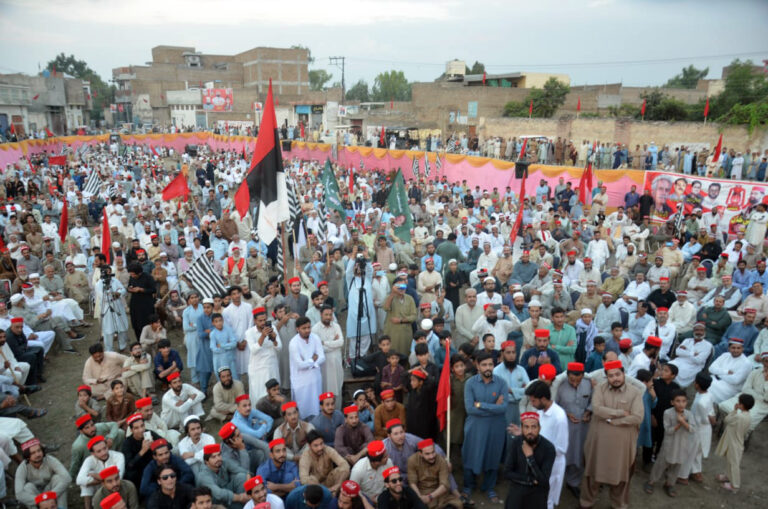PESHAWAR: Ahead of the upcoming general elections next month, Pakistan Tehreek-e-Insaf (PTI) emerges as the sole political party to nominate candidates for all provincial and national assembly seats in the Khyber Pakhtunkhwa province. However, the electoral landscape reveals a unique dynamic within PTI, as multiple candidates from the party contend against each other in some constituencies.
In contrast, other political entities have chosen to leave a significant number of national and provincial assembly seats vacant due to lack of candidates, adding a distinctive dimension to the electoral scenario. Awami National Party (ANP), with a century-long legacy in Khyber Pakhtunkhwa, stands as the second party with vacant seats. ANP has decided not to contest in 13 out of 45 National Assembly seats and has left 20 seats vacant in the provincial assembly.
According to data from the electoral body, Pakistan Muslim League-Nawaz (PML-N) has actively fielded candidates for 35 out of 45 National Assembly constituencies, opting to leave 9 seats vacant. Similarly, for the Khyber Pakhtunkhwa assembly, out of 115 general seats, PML-N has issued tickets to candidates in 100 constituencies, leaving the remaining 15 vacant.
Jamiat Ulema-e-Islam (JUI) has taken a strategic stance by not fielding candidates in two national and five provincial assembly constituencies, a decision confirmed by Election Commission documentation.
Pakistan Peoples Party (PPP) has also left 7 seats vacant for the National Assembly and 4 for the Provincial Assembly due to lack of suitable candidates and support of the voters in the constituencies.
In a surprising move, the newly emerged party stemming from PTI, Pakistan Tehreek-e-Insaf Parliamentarians (PTI-P), has left 28 seats vacant in the National Assembly. Additionally, PTI-P has failed candidates in 60 constituencies for the Provincial Assembly.


